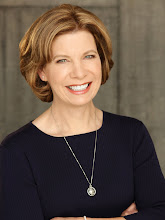By
Idelle Davidson
For those of us who have traveled through cancer or are experiencing it now, how does sharing our stories help us find our way? The answer lies in validating each other's thoughts and feelings so that no one feels isolated and alone. The answer lies in connection, in community.
I thought about this while watching a re-run of a PBS series called, "The Power of Myth."
I thought about this while watching a re-run of a PBS series called, "The Power of Myth."
There sat Bill Moyers, the thoughtful, intelligent journalist I have long admired (who unfortunately retired from PBS last April) with Joseph Campbell (now deceased), the renowned scholar who may be best known (and misunderstood) for his philosophy to "follow your bliss."
In discussing how myths and stories across different cultures reveal universal truths, Moyers asked Campbell why people feel compelled to tell stories. Campbell explained it was probably for the same reasons that ancient humans told stories in their scratch-mark drawings on cave walls: to warn of danger, to record catastrophes, to boast of conquests, to thank deities, to make sense of the human experience.
And then Moyers added that it's kind of like these messages come to us in a bottle from a shore that others have visited first. And these messages tell us how others have made the passage and how we can make the passage.
I discovered the power of story while interviewing survivors for Your Brain After Chemo. Men and women described the toll treatment had taken on their bodies and minds. Their accounts were sometimes sad, sometimes angry, often hopeful and always poignant. And when appropriate, I would share my own story of going through breast cancer and chemo. I would also tell them about the research in the field of cancer and cognition.
They were grateful for this exchange. It confirmed they were not crazy, that they were not imagining their post-chemotherapy problems with memory and attention and word retrieval. In many cases it explained a treatment side effect they had kept to themselves out of embarrassment, simply because their doctors had not forewarned them.
In turn, I was grateful to connect with them and pay forward what I had learned about this post-chemo phenomenon we sometimes call "chemo brain." We handed off our messages. We eased each other's passage. At least for that brief moment we were a community. And that's what healing is all about.






.jpg)

No comments:
Post a Comment